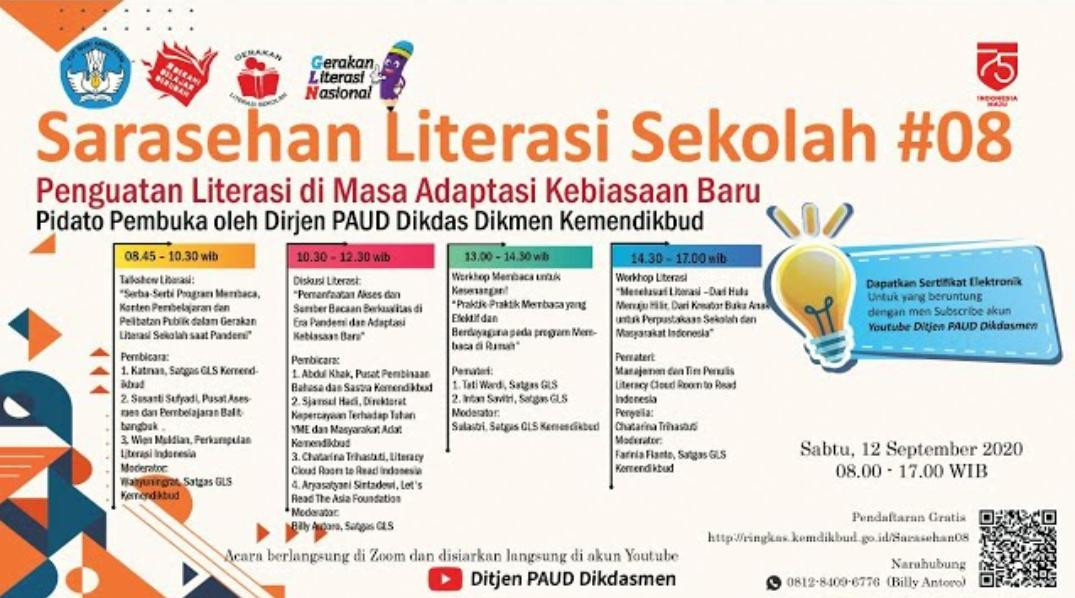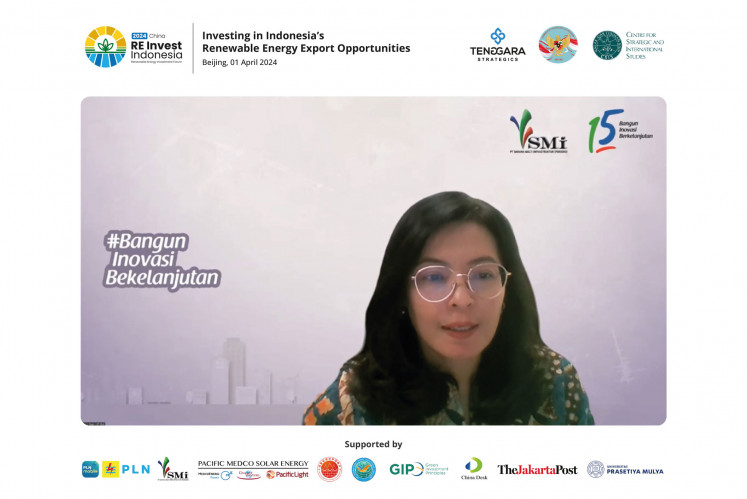Schoolchildren encouraged to make use of reading materials
Change Size

T
he government is appealing to education stakeholders to work hand in hand in providing access to reading materials to support the national literacy movement.
"Let's pull together our vision and plan joint movements to provide reading materials to students. Let’s work together to improve literacy in schools and society in general, so that they can access learning resources, understand and digest learning materials, make good use of it to increasetheir literacy skills for the sake of a better future,” said Jumeri, the Education and Culture Ministry’s director general for early childhood, basic and secondary education when opening a webinar on the School Literacy Movement.
The event was part of the 2020 International Literacy Day commemoration, which fell on Sept. 8.
In the midst of various government policies to deal with the COVID-19 pandemic, a lack of access to reading materials is seen as a barrier to national literacy.
While forcing a shift to remote learning, this pandemic is the right moment to revive a love for reading as a means of acquiring knowledge.
The reading campaign is felt to be even more urgent considering that Indonesia's illiteracy rate, which is reportedly 36.8 percent, is at an alarming level.
The reading frequency of the Indonesian people is said to be between three and four times a week with a reading time of only 30-50 minutes.
According to the World Health Organization (WHO), literacy is the main determinant of a person’s well-being, and lower literacy levels increase the risk to health problems.
The distance learning regime has been in place for more than six months. Students and teachers have been forced to adapt to unprecedented conditions in the history of human life.
The efforts made by the Ministry of Education and Culture as the national education authority to deal with the problems caused by the pandemic include remote learning programs through the TVRI television channel and RRI radio to reach students in the outermost, underdeveloped and frontier regions, known as the 3T areas.
Simplified school curricula have been introduced to provide guidance for teachers in delivering more substantive materials to students. Providing internet quota assistance to students, teachers and lecturers as well as more flexibility in the disbursement of the government’s school funds (BOS) are among the pandemic response measures.
However, one obstacle that calls for serious attention is the provision of reading material for students, both in printed and in digital form.
Books are one of the core tools for learning, especially in areas where there is no electricity and internet access.
To deal with the problem of reading material procurement, in addition to efforts through BOS funds, improving library services and providing digital libraries on the Ministry of Education and Culture's website, the government encourages agencies, institutions and organizations engaged in providing reading materials to be more active in disseminating both printed and digital reading materials.
A nonprofit organization that focuses on child literacy, Room to Read Indonesia, has pledged its commitment to support distance learning activities during the pandemic through the introduction of LiteracyCloud.org, a platform that provides quality digital books for children.
Let's Read Indonesia Foundation is also looking to help the literacy movement by cooperating with local communities to build an unprecedented digital library of local language children's books while cultivating a sustainable network of book authors, illustrators and translators who are committed to creating meaningful reading opportunities.
The Indonesian Literacy Association saw the importance of public or community interaction in distance learning by way of providing reading facilities.
The literacy movement must be seen as an effort to encourage all elements of society, especially school children, to gain access, decipher, manage and make use sources of knowledge – for better livelihoods.









